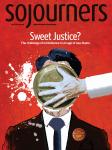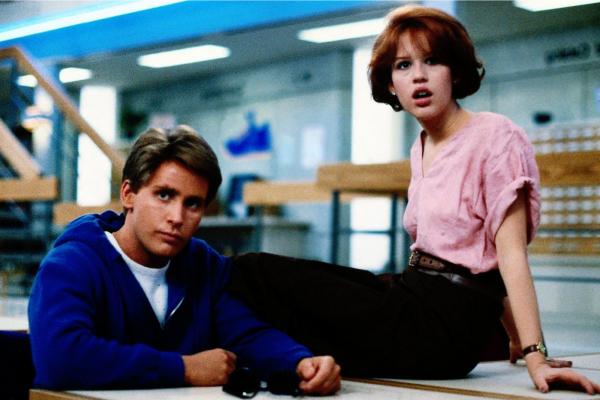MY OLDEST SON is about to turn 11, which means he is old enough to both recognize and call out the hypocrisies of the adult world. Here are two recent examples:
- While watching an NBA game, he says that adults are always saying that boys shouldn’t judge girls by their looks, but what else are you supposed to be doing while cheerleaders are doing their moves? And what do cheerleaders have to do with basketball anyway?
- As my wife and I are singing along to old-school hip-hop in the car, he says that if boys are not supposed to talk about girls’ body parts in ways that make them feel like objects, why is it okay for this guy to sing about liking “big butts”? And why is it okay for us—his parents—to be singing along?
These questions make my wife and me squirm. Generally, we try to face things square on, but on the subject of why we tolerate certain messages in the pop culture that we like, we go mum.
But something in Molly Ringwald’s New Yorker piece this spring about watching her ’80s-era Brat Pack movies with her then 10-year-old daughter made me think more deeply about the whole dynamic. Ringwald writes about how uncomfortable she was being confronted by the racist and sexist themes in those movies. The horribly racist caricature of Long Duk Dong in Sixteen Candles. The under-the-table panties scene in The Breakfast Club. The casual ways boys in those movies talked about trading drunk girls as if it were normal.
Something about the presence of her young daughter watching alongside her, asking her to explain this scene or that, made the unjustifiability of it all that much more obvious to the now middle-aged Ringwald. The subtitle of the piece is “Revisiting the movies of my youth in the age of #MeToo,” and it looks at how it feels to see the racism and sexism of these movies with today’s eyes.
That, of course, puts my wife and me in an especially difficult bind. We live in the #MeToo era. And we, along with most of the other adults in our progressive world, sanctimoniously lecture our kids about things like how to speak to women and the power of words. And then we participate fully in a pop culture that is awash in images and language that undermines those lessons.
For me, this is most obvious at the fitness center I attend. There I am on the treadmill with all of these fellow parents from the local public school, listening to songs whose lyrics are mostly about men attacking women’s bodies like meat, and everybody acts like everything’s normal. This is not a dance club at 11 p.m. on a Friday night; it’s a fitness club at 11 a.m. on a Saturday morning.
My progressive friends and I love pointing out the thick hypocrisies of Trump-supporting evangelicals. How can they lionize such an obvious misogynist? It’s certainly not at the same level, but isn’t there more than a little hypocrisy among progressives on the subject of the pop culture we love?
Molly Ringwald’s excuse is that the cultural norms of her time were racist and sexist, allowing the writer of those ’80s movies, John Hughes, to write things he wouldn’t write today, or get away with. But we all live in this more culturally evolved new moment, right? So, what’s our excuse?

Got something to say about what you're reading? We value your feedback!

